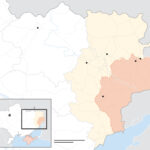
In theory, a “world” or “global” stock fund should be roughly the same no matter what country you are investing from. A world fund in Germany, for instance, should be nearly the same as a world fund in the U.S., because they both have the same objective: to track the capitalization-weighted global stock market—unlike the many varieties of international funds that take more-focused approaches.
But when we investigate the holdings of different fund managers around the world, we see quite a different picture. Some fund managers, like those in the U.K., tend to overweight their home country or region when constructing global equity funds for investors in their country. Others, like those in the U.S., tend to underweight their home country or region.
What does that mean for the returns of those funds? More often than not, the fund manager who underweights the home country or region has outperformed the manager who overweights the home market, based on returns over the past decade.
The research
To investigate this issue, University of Richmond professor Ardavan Mobasheri, two research assistants (Kendra MacBruce and Sasha Mironova) and I examined the holdings of all global equity funds issued in their home currency from 16 different countries.
To determine whether a fund manager was overweight or underweight for their country or region, we compared their holdings to the weightings in the global MSCI ACWI index. For instance, the index has a 61.3% weight in U.S. stocks. If a U.S.-based global fund manager was allocating 62.3% of a portfolio to U.S. companies, this would mean the manager was overweight by 1 percentage point in U.S. equities; if the same fund manager was allocating 60.3% of the portfolio to U.S. companies, this would mean an underweighting of 1 percentage point.
Bulls in Spain
We found that fund managers in Spain, Germany and the U.K., among others, tend to be bullish on their own country’s or region’s prospects. For instance, the median eurozone weighting among fund managers in Spain is 20.88%, while the MSCI ACWI holds a 13.1% weight in the area. That difference of 7.78 percentage points is the greatest median overweighting by any managers in their own country or region.
On the other hand, fund managers in France, Belgium and the U.S., among others, tend to underweight their home country or region. Underweighting this way usually has paid off better than overweighting. To highlight this: Funds in the countries with the three lowest allocations to their home country or region yielded average returns of 13.63% (France), 12.24% (Belgium) and 11.40% (U.S.) over the past 10 years. Funds in the countries with the three highest allocations to their home country or region yielded average returns of 9.16% (Spain), 9.93% (Germany) and 11.38% (U.K.).
So, for investors, paying attention to which fund managers are overconfident in the home country’s future prospects could help boost your returns. And in any case, a more neutral weighting would provide greater diversification.
Dr. Horstmeyer is a professor of finance at George Mason University’s Business School in Fairfax, Va. He can be reached at [email protected].
Copyright ©2022 Dow Jones & Company, Inc. All Rights Reserved. 87990cbe856818d5eddac44c7b1cdeb8








